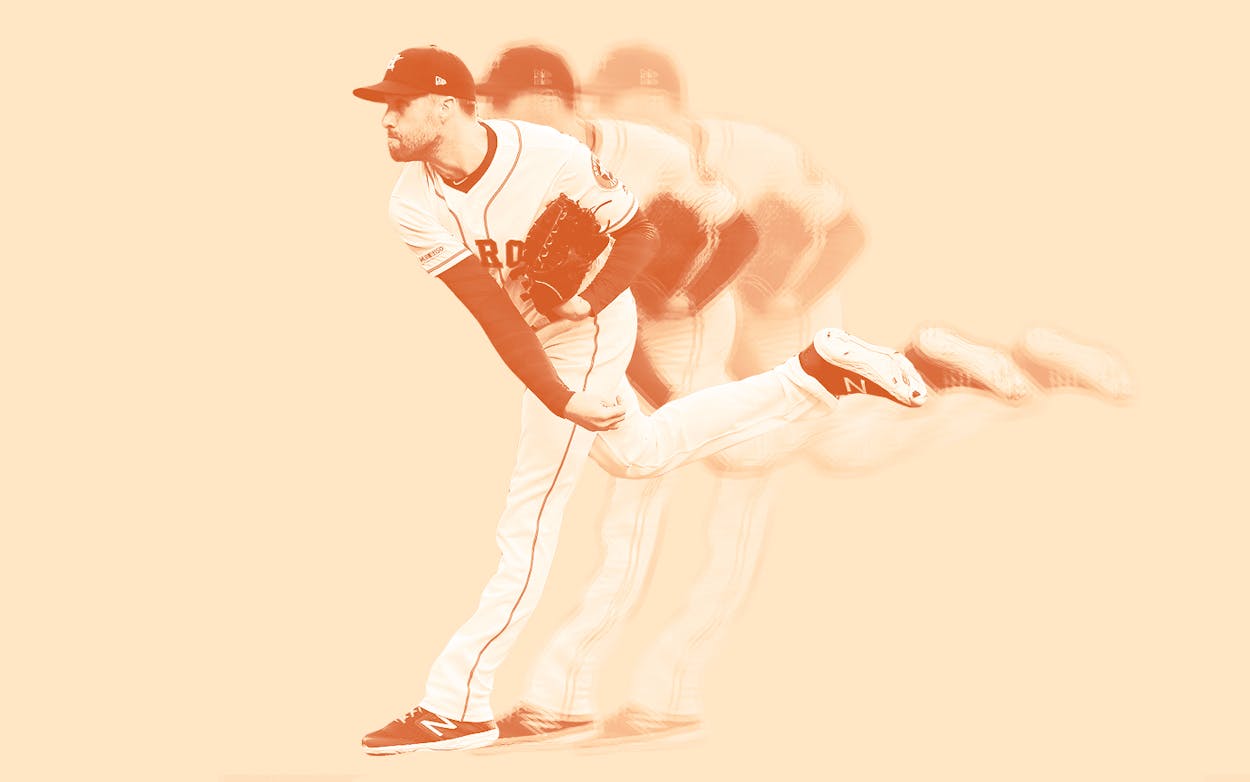Things are going well for the Astros a few weeks into the 2019 MLB season. With a 12-5 record, they’re currently in the midst of a ten-game winning streak and in possession of the second-best record in baseball. While it’s still early, they’re currently on pace for their third consecutive 100-win season. The bullpen is strong, fan favorite Jose Altuve is at full health, and the future is bright: two of the top seven prospects in baseball—pitcher Forrest Whitley and outfielder Kyle Tucker—are currently playing for the team’s AAA farm club in Round Rock. The season might have gotten off to a troubling 2-5 start, but at this point, that looks like a mere speed bump on the team’s quest to #TakeItBack.
But if you needed evidence that the Astros are in the midst of a charmed season, look no further than the amazing move that pitcher Collin McHugh pulled off last night against the Oakland A’s, in the second of what would be six shutout innings. After McHugh sent a 90 mph pitch across the plate for A’s designated hitter Kendrys Morales, Morales made contact, sending the pitch right back toward the mound on a fierce line drive. McHugh avoided injury by pulling off a Matrix-like move that would make Keanu Reeves jealous, executing as if on pure instinct a perfect backbend that allowed the ball to pass harmlessly, inches from his chin.
Let’s watch it in real time, and then again a few times in slow-motion:
The Matrix (1999) pic.twitter.com/3uGwMdLmha
— MLB (@MLB) April 17, 2019
The Matrix references flew fast in the wake of the move, which really did look an awful lot like Neo defying the laws of nature (and demonstrating the groundbreaking “bullet time” technology the film pioneered) to avoid the bullets fired in his direction by the villainous Agent Smith in the 1999 box office smash. Let’s compare the two below:
Now, outside of the surface similarities, there are a few key differences between what McHugh did and the move that Neo pulls off starting at about 0:34 seconds into the clip above. Both display a preternatural awareness and instinct for self-defense that borders on the uncanny, and both exhibit a nigh-superhuman flexibility. But Neo, operating within the film’s titular simulated reality of the Matrix, is unbound by forces like gravity, physics, or human anatomy. McHugh, existing in a world bound by those laws, ends up landing on his backside, carried by the momentum of his dodge all the way to the ground, as nature intends. He is merely an impressive human and not a demonstration of a glitch that exposes all of reality for a mere simulation.
Which is kind of nice to know. McHugh’s fall isn’t irrefutable evidence that the physicists and philosophers who believe we are living inside of a computer simulation are wrong, but it’s a quick point in favor of “we actually are living in reality,” and that’s a swell thing to have in your pocket. And a 10-game winning streak, a 100-win season, and a World Series championship—all of which the Astros have achieved during McHugh’s tenure with the team—are all more impressive when they happen in prime reality. McHugh’s move on the mound was amazing, but not so amazing as to make us doubt the nature of existence. Go Astros.
- More About:
- Sports








